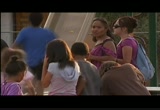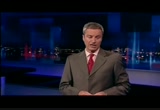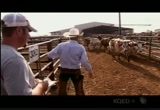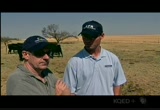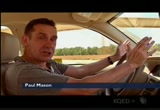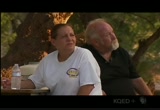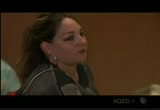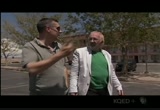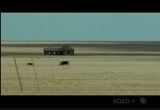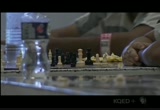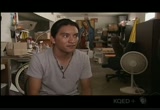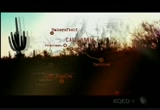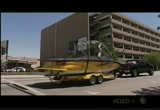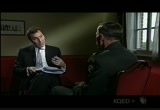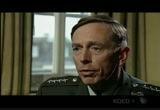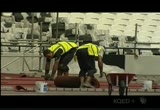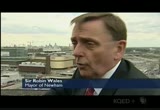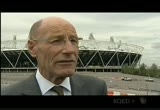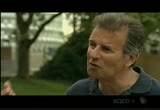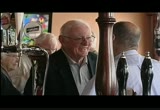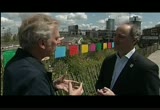tv BBC Newsnight PBS July 30, 2011 12:00pm-12:30pm PDT
12:00 pm
12:01 pm
wide range of companies. what can we do for you? >> and now, "bbc newsnight." >> political gridlock in washington. anxiety on a world stock markets as america faces up to its debt crisis. this week, american politicians squabble over the country's debt. how much are the american people suffering from the slowdown? we hit the road to find out. >> it has been bad. i have had to sell my calves earlier than i used to. last week, i sold half of my cows. >> whether u.s. pakistan relations can ever recover. >> anyone who has stepped back from the abyss after looking into it realizes that once again we have very important
12:02 pm
objectives. >> it is a year until the british show on earth comes to london, will the city be ready? on a live picture to remember. there is nothing new about political gridlock in washington. republicans and democrats have fallen out over something that normally passes on a nod, raising the debt ceiling. out in the real america, there is a great deal of pain over the economy. our correspondent has been taking the route over oklahoma which inspired the john steinbeck novel "the grapes of wrath." >> to the red country and part of the great country to open,
12:03 pm
-- to oklahoma. the last rains cut gently. >> so begins steinbeck's novel "the grapes of wrath." the events that happened or 80 years ago, but once again america is in the grip of unemployment and oklahoma is in the grip of drought. i'm about to retrace the journey that steinbeck describes. at the cattle market, business is brisk. for the wrong reasons. farmers are bringing their cows to market because the drought leaves them with no options. >> to operate might operation, i need 400,000-five and a thousand dollars a year to keep it going. -- $500,000 a year to keep it
12:04 pm
going. >> everything is failing. >> it has been bad. i have had to sell my calves earlier than i have to. last week, i sold half of my mama cows. >> does that make you feel like giving up? >> it is hard to get sleep. how am i going to stretch this out, how my point to make this work? -- how am i going to make this work? i believe in the lord. >> at the cattle market, prices have fallen. unlike in the 1930's, the entire system is underwritten with government subsidies and loans. that is under threat as america moves to cut spending. at knockdown prices, they are selling their future. of thousands, tens
12:05 pm
left this land and set off west for california. the experience still haunts the landscape. the old route west, route 66, has been replaced by interstate 40. 66 is still there, just at the side. in steinbeck, the jones make this journey into a world of conflict, ruthlessness, prejudiced. there is plenty of that today. what there is not today and was then was the general agreement about the direction of the economy. the government is set to shrink. the journey through texas and new mexico takes you into a whole different landscape.
12:06 pm
today, it is normal out for people to move for work. the hopelessness that shock steinbeck is almost a way of life. as a result, and it did does it come up boom towns and boom suburbs that have now turned to bust. -- as a result, boom towns and boom suburbs that have now turned to bust. >> there's a right to privacy in the tent. the right to talk and listen. >> that is how steinbeck describes the camp for migrants. this is a homeless shelter for homeless immigrants. now there is a new kind of customer, the american middle- class. this man was once the manager of a vehicle fleet.
12:07 pm
they lived in a motel but his unemployment runny ran out. >> when you lose a job, you have to downgrade your life and sometimes those bills start racking up and you only get further and further behind. then you start losing stuff. cars start getting taken, you cannot pay the node. >> can ask you how it is been for you to cope with all of this? >> [inaudible] >> you have been here how many nights? >> this is my second week. >> what is the hardest thing about it? >> well, just having my kids here. they are my number one concern. >> the experience of albuquerque gives me a whole new take on the
12:08 pm
motels that have been pressing -- been passing. what role does it play in the whole housing and homelessness system? >> this is huge. many of the folks are getting their welfare check. they will spend some or all that on getting a room for seven to 10 days. then they will migrate down to to a johnson -- migrate down to join junks and -- >> this is a housing crisis. many americans cannot afford to put a roof over their head and repossessions are still rising. 80 years ago, the single road west through arizona was filled with migrants, farmers, workers, office workers, all displaced by property.
12:09 pm
this landscape of cactuses and a vast canyons must have seemed to them like a different planet. if you can't compare this to the actual journey, there is nothing in steinbeck to prepare you for the fastness and the distance that the 30's dust bowl migrants had to face i don't think the steinbeck ever made the full journey. what he knew about was the end of the journey which was social conflict. today, you don't have to get to the end of the journey to find that. arizona has become the political fault line of america, above all on the issue of migration. the boom times brought millions of migrants. tensions are rising.
12:10 pm
arizona is still in recession. >> at the scale, the inmates are forced to live in tents. the temperature on the day i went there was 114 degrees. they are forbidden to cover their heads in the sun. they have pink house, sauce, sheets, that are required to wear pink underwear. -- they have to have a pink shirts, sheets, and are required to wear pink underwear. if you are stopped by police and cannot produce legal documents, you have committed an offense. other losses criminalize the transportation of immigrants. >> you don't have a name, you have a number. they call you an alien. >> this man was picked up for
12:11 pm
driving without a license. he spent a month in the prison system and now he is on bail fighting deportation. how do young mexican men live? what kind of jobs do they do? >> housekeeping, landscaping, restaurants. every restaurant, you will find a mexican in the back. >> these laws have been building up, why do people come? >> it is card for them to live over there. they don't have any option to go to other countries. the best option is the u.s. >> but the migrants keep on coming and the car parts and hardware stores, here, and across america, and then wait for casual work for cash. the last part of the journey would be the hardest, they would run into strikes, vigilante
12:12 pm
squads, roadblocks. in the 30's people made this journey because at the end, there was jobs. people were going through what is called a jobless recovery. right now, even the recovery itself looks like it is stalling. in the book, they crossed the desert by night and at dawn, they come to the san joaquin valley. >> they drove through in the morning and the sun came up behind them and then suddenly, they saw the great valley below them. >> in steinbeck, they come to california to look for work. they find work but the book is a metaphor for something else. this is about the search for a
12:13 pm
new economic model that can create jobs, sustained growth, and drive america out of recession. that is a question that they still face in a place like this. the journey ended in bakersfield. today, the big employers here are oil and farming, but the biggest employer of all by far, is the u.s. government, in the form of the military. when america boom, bakersfield. . -- when america boomed, b baker'so feel toomed. all across the south, there are the same basic problems, not enough credit to solve the housing market. >> general david petraeus is
12:14 pm
regarded as one of america's best and brightest. he's about to begin a new job as head of the cia. our diplomatic editor has been talking to general petraeus on his way home from afghanistan about america's longest war and other matters. >> nato forces in afghanistan have a new commander. general david petraeus is on the way home. he had been expected to serve longer but has been recalled to head the cia. the force he is leaving behind is now being quicker than he recommended. the insurgency has shown itself capable of hitting back with the assassinations and spectacular attacks. nato insists that they're winning. i asked the general what the possible grounds for optimism could be. >> what we have seen now is developing into a trend. in fact, this past week, yet again the level of insurgent
12:15 pm
attacks was lower, over 20% lower than the level of attacks in the same week last year. that makes nine of the last 13 weeks in which this has taken place in which the levels of attacks are lower than the corresponding time last year. that is completely contrary to what the intelligence professionals predicted. >> do you think that the strategic level, the death of bin laden, has created any new political possibilities or check political momentum or is it not possible to see it like that? >> well, this is a very significant blow to the al qaeda senior leadership, to the overall franchise of al qaeda as well. he was iconic figure of this movement. i think that even his image has been tarnished, diminished by the final pictures that were seen of him. just the fact that he is dead, he is gone.
12:16 pm
in the arab world, that is the biggest blow that you can sustain. so, that in a sense is quite significant, obviously. it turns out that he was quite active with operational guidance and work in the movement. he was also a very effective fund-raiser. his successor is no osama bin laden. the al qaeda franchise and network has sustained a substantial blow. having said that, it is not apparent what effect that will have on the insurgents fighting in afghanistan. some of their leaders have had second thoughts about how frequently they might move or relocate at various times when they are in areas that they deemed safe. >> there has been talk, particularly i am thinking by the chairman of the joint chiefs, that after this process
12:17 pm
of drawdown goes on at this rate, there could be risks that are being embraced. what do you think can be done over the coming year, 18 months, to mitigate the risks? >> well, the key of course is to maintain the pressure on the insurgents, to reduce their capabilities as much as possible, to disrupt, dismantle, in some cases to defeat them. then to establish a combination of local security initiatives. the security forces that can back them up. keep in mind, we build the infantry formations first. now we are helping them to build their artillery. there fixed and rode three wing aviation, military intelligence, engineering teams, logistics', all of that.
12:18 pm
that is important as well. indeed, to build that more rapidly than the action to draw down. >> how big a risk is the state of relations with pakistan? >> clearly, the relationship between again my country and pakistan has seen some challenges, needless to say, in recent months. really, in the last 8 months or so. my hope, frankly, is that we recognize the mutual objectives that we have and that we can begin a process of revising some elements of a relationship that has indeed been difficult. we do have a lot of common goals. >> i would not say that it is hard to imagine things getting worse but it would be a complete shock. isn't this in a pretty bad state?
12:19 pm
they have claimed by the afghan government to be shelling into afghanistan. they say they have withdrawn all cooperation with the u.s. on the strikes and so on. do you think that we are building? >> i do, actually. everyone has stepped back from the abyss after looking into it and realizing once again that we have again a very important objectives, many of which we share and we need to focus on those and move forward. >> the campaign in afghanistan has been a long slog. there has been a huge price paid in lives and money. do you think that the patience of the u.s., the u.k., nato will hold out over the next few years? do you see exhaustion set in
12:20 pm
end? >> this has been a long war, no question. our countries have shown enormous determination and persistence. my sense is that if that progress continues, if the people recognize that this enables us to achieve our important objective, they will continue to provide the support. this is incumbent upon us and our partners to continue to build on that progress so that we can be very clearly seen by all of those back home that have sacrificed so much. >> this week, the one-year countdown to the start of the 2012 olympic games once again. london promised to build -- arlenet irina's us. how was london getting on?
12:21 pm
this is how the dream took shape. space age arenas for that world to visit. the centerpiece, the 80,000 seat olympic stadium. amazing what a few billion can do. already, they are laying the running track. the most ambitious pledges are still kept. they got the olympics because of what they promised, the regeneration of london's poorest areas. this is to be the launch pad, the future is supposed to start here. there is of course a buzzword. the buzz word is legacy. the regeneration of the entire
12:22 pm
community for the benefit of everyone that lives there. most of the olympics will happen in the east london borough. the locals have faced years of destruction. the mayor says that it will be worth it if they can see the benefit. >> are you worried that people resent this? >> yes. >> we want a dress rehearsal. we get the feel of the olympics. there are lots of things you can do. >> you think that local residents should be invited. >> london needs jobs. the mayor says the construction for one and a half billion pound new shopping center is a far better prospects than the olympic project. the man who delivered the
12:23 pm
olympics on time and under budget says that is unfair. >> i cannot have done this relying on rabin turning up with people. you always want to get things done on time and create jobs. we have more focus here to create trading up to these -- trading opportunities. >> these youngsters training in south london are part of a troubled project run in the most deprived areas to encourage participation in sport. they have no olympic funding but there director is unconvinced of the games sporting legacy. in the bid, -- pledged that the games would inspire a new generation to get involved and sporting activity. no one is delivering on that
12:24 pm
promise. >> i am not sure who is taking responsibility. the person in singapore made the comment. it has been unclear who need to create the responsibility. >> if you don't know who to ask, what hope is there? >> there are many sports where participation is decreasing. we're hoping that the legacy will happen after the olympics. >> the green house project has been lauded for encouraging support losses for the sporty but for everyone. he says the coaches have to be qualified. >> there are many programs where people go when and say there are 50,000 people doing this. this will not make a difference to their lives by going in for
12:25 pm
the short-term. >> stratford is a growing public transport hub with 14 rail lines. the sheer volume of passengers to the games will be a challenge. the roads are a real concern. the railway tavern just opposite the village, business is booming. tourists have been rising all year. the next year, the road outside will be closed for three months. >> i have already had to have -- and they are dismantling and building a new bridge. we were part of the building site. i in the stand. people to speak to you. they seem to think that well, it
12:26 pm
is the olympics. that's it. >> as you can see -- delong >> the head of the olympic legacy company says that this will pay off. he knows the real regeneration will take another 20 years. there are no guarantees. >> the idea of this upload around the country is greater regionalization. >> london is always growing. london is expected to grow between 7 and 8 million people. the buildings and the backdrop are testament that building is growing. >> predicting whether 2012 has a successful legacy is an exercise in speculation. legacy is something that can only be judged with hindsight.
12:27 pm
you have to wait until after next year. in fact, until years after 2012 until we can see that the gamble is paying off. >> that is off for this -- that is all for this week. thank you. >> funding was made possible by the freeman foundation of new york, stowe, vermont, and honolulu. newman's own foundation. and union bank. >> union bank has put its financial strength to work for a
12:28 pm
140 Views
Uploaded by TV Archive on

 Live Music Archive
Live Music Archive Librivox Free Audio
Librivox Free Audio Metropolitan Museum
Metropolitan Museum Cleveland Museum of Art
Cleveland Museum of Art Internet Arcade
Internet Arcade Console Living Room
Console Living Room Books to Borrow
Books to Borrow Open Library
Open Library TV News
TV News Understanding 9/11
Understanding 9/11
